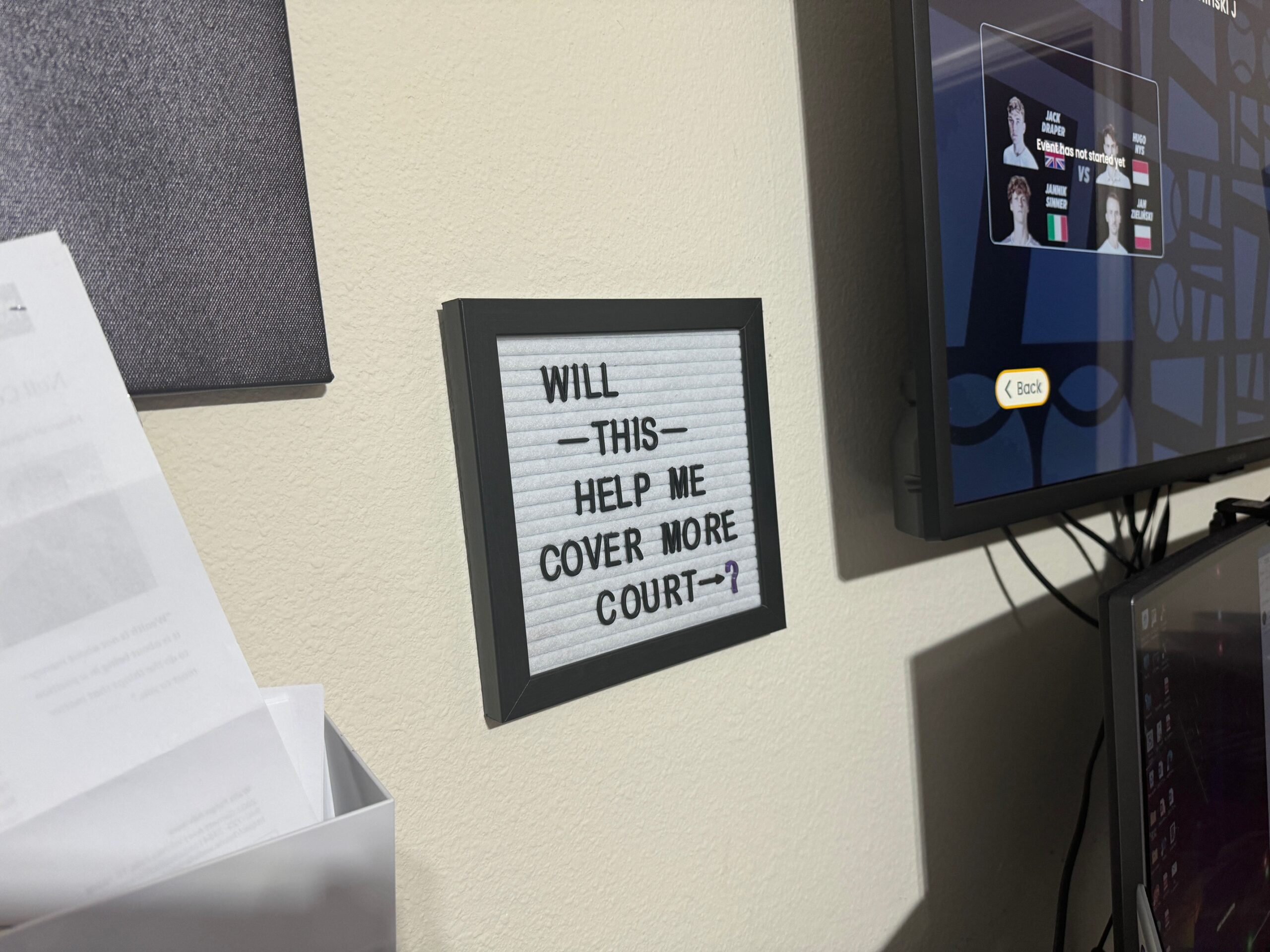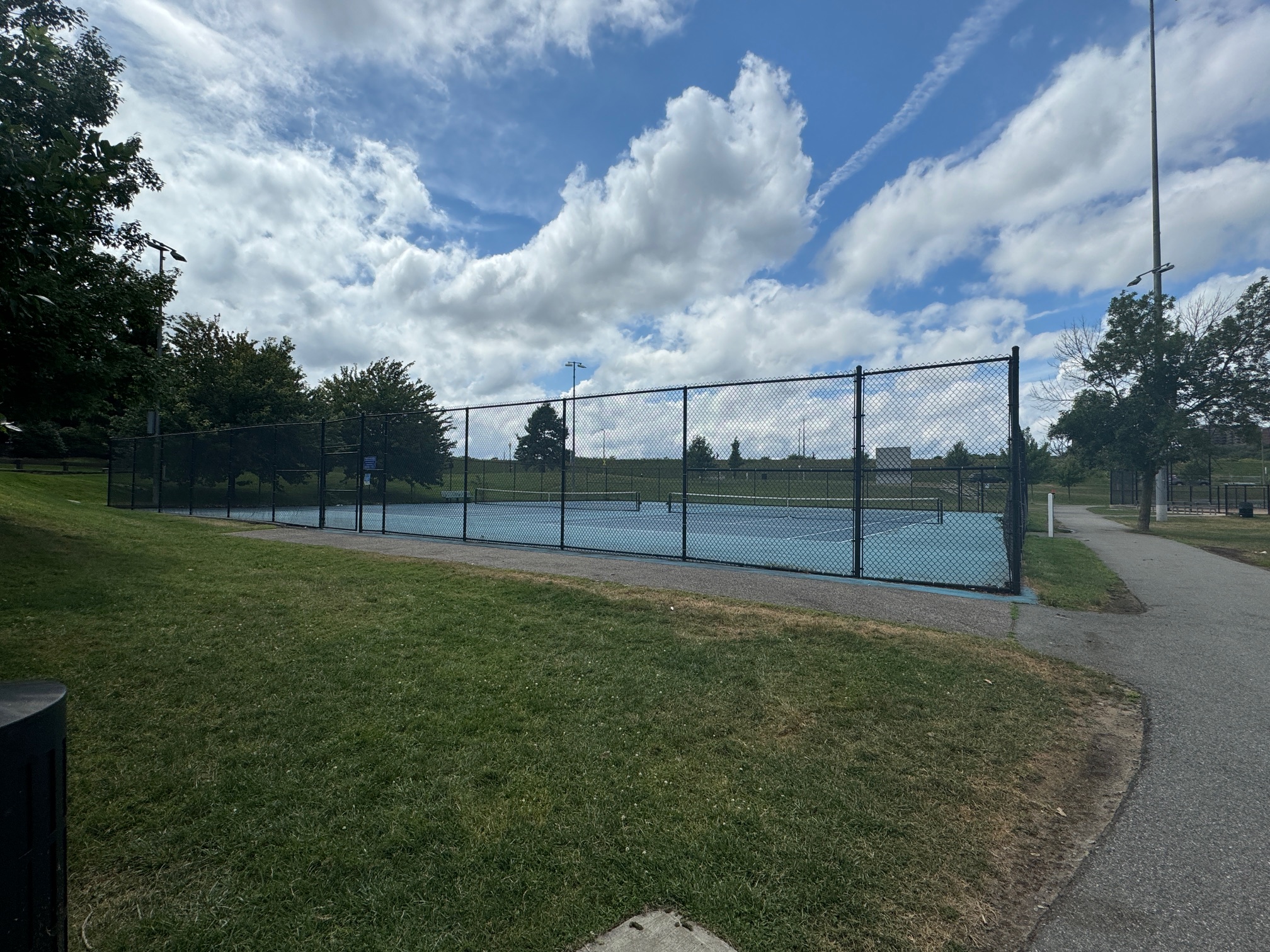In case you missed it, the “Pickleball Slam 2” featuring a slate of retired professional tennis legends was conducted last Sunday evening. The competitors included John McEnroe, Maria Sharapova, Andre Agassi, and Steffi Graf. Jack Sock and James Blake also participated in the event. Their second billing is shade from the event promoters, not mine. This is the perfect time to circle back to see how well my observations following the original “$1 Million Pickleball Slam” have aged.
As of this time, viewership ratings for the second installment of this exhibition have not been published. The original spectacle attracted 669,000 viewers and outperformed several MLB, NHL, and NBA games that occurred that week. This latest event was strategically scheduled for the off Sunday between the NFL Conference Championships and the Superbowl. Consequently, I expect this year’s television audience to be even higher.
Gambling was front and center for this year’s Pickleball Slam. Apparently, legitimate wagering was allowed for the exhibition this year. Additionally, many of the players placed additional proposition bets as the competition progressed. For example, Graf placed a bet before the match that McEnroe would have at least two meltdowns during the evening. That paid out within the first two points. The collective attitude toward gambling this year is in sharp contrast to Sam Query, who bluntly refused to engage in wagering discussion during the original event.
While prize money was on the line in addition to the side bets, the Pickleball Slam 2 is an exhibition event. This raises the specter of the barely under-the-radar culture of arranged split-set matches by professional tennis players in that context. Essentially the “competitors” usually agree that each would win a set before legitimately going all out for the third.
Perhaps coincidently, the first two matches at the Pickleball Slam 2 were also 2-1 split decisions. It made me wonder, especially since the Agassi team seemed to have a dominant advantage over their opponents. While Graf and Sharapova might be a toss-up, both Agassi and Sock are considerably younger than the players on the other side of the net. Additionally, Sock is currently competing on the professional pickleball tour.
The team led by 64-year-old John McEnroe included Sharapova, who reportedly only took up the sport six weeks ago, and James Blake. After reviewing his autobiography “Breaking Back” yesterday, I couldn’t help but wonder what he was currently doing. The answer is promoting pickleball as a co-owner of an MLP team. Blake has also scored an obvious sponsorship deal with Selkirk, based on the size of the logos all over his clothing and equipment.
After the Agassi team won the first two matches that pitted Agassi/Sock against McEnroe/Blake and then Graf/Sock against Sharapova/Blake, it was announced that the final match was worth two points. How convenient to use a scoring format that ensures that all three matches are relevant regardless of the outcome of the first two! The husband-wife Agassi team easily dispatched the final tilt against the geriatric McEnroe and pickleball newbie Sharapova. There wasn’t a lot of suspense after all.
I am still not a pickleball enthusiast though I have engaged with the new sport a few times and can certainly see the appeal for people who have become addicted. After the novelty of seeing the aging tennis stars play for a while, I found myself struggling to stay awake despite the banter of the mic’d up competitors.
As another annoying novelty, Blake donned a wearable camera for part of the event. That gave the viewers the opportunity to experience on-court action vicariously, albeit in the style of the ‘Blair Witch Project.’ To say that the footage was unwatchable is an understatement.
After the original Pickleball Slam, I wrote that I didn’t anticipate going out of my way to watch future events. While I caught this one live, it was more of a nod to the fact that it aired in the void of pre-Super Bowl Sunday. Additionally, last year I lamented that ESPN did not offer on-demand streaming of the original exhibition. This year anyone who wants to check out the spectacle for themselves can access it anytime on ESPN+.
It is telling that using athletes from another sport is still seen as a viable strategy for promoting the sport. That is hardly surprising since, with the exception of Sharapova, the rest of the competitors are heavily invested in the business of pickleball.
Last year I observed that ESPN was in the process of figuring out whether the new racquet sport has broadcast media appeal. I don’t think that anything has changed in the interim. Clearly the sport is attracting a tremendous amount of investment and excitement, but whether that ultimately translates to financial success remains unresolved.
In a way, the current frothiness in pickleball investment feels a little bit like the dot-com bubble of the 1990s before everything came crashing down in 2000. While many companies folded, internet giants like Amazon and Facebook rose from the ashes. Similarly, as a sport, pickleball is clearly here to stay. However, it will be interesting to see how it ultimately settles out once the novelty wears off and the easy money stops pouring in.




Interestingly, I am Refereeing a Tennis Tournament at a country club and there are 4 newly installed pickleball courts a sort distance away from the nearest tennis court. All of the tennis courts are surrounded by trees and their density excludes the unconscionable noise from pickleball courts.
The Director of Tennis says the Country Club management views the installation of the pickleball courts not as generating any additional revenue, but much as they view table-tennis tables in the clubhouse – as an additional feature rather than a money spinner.